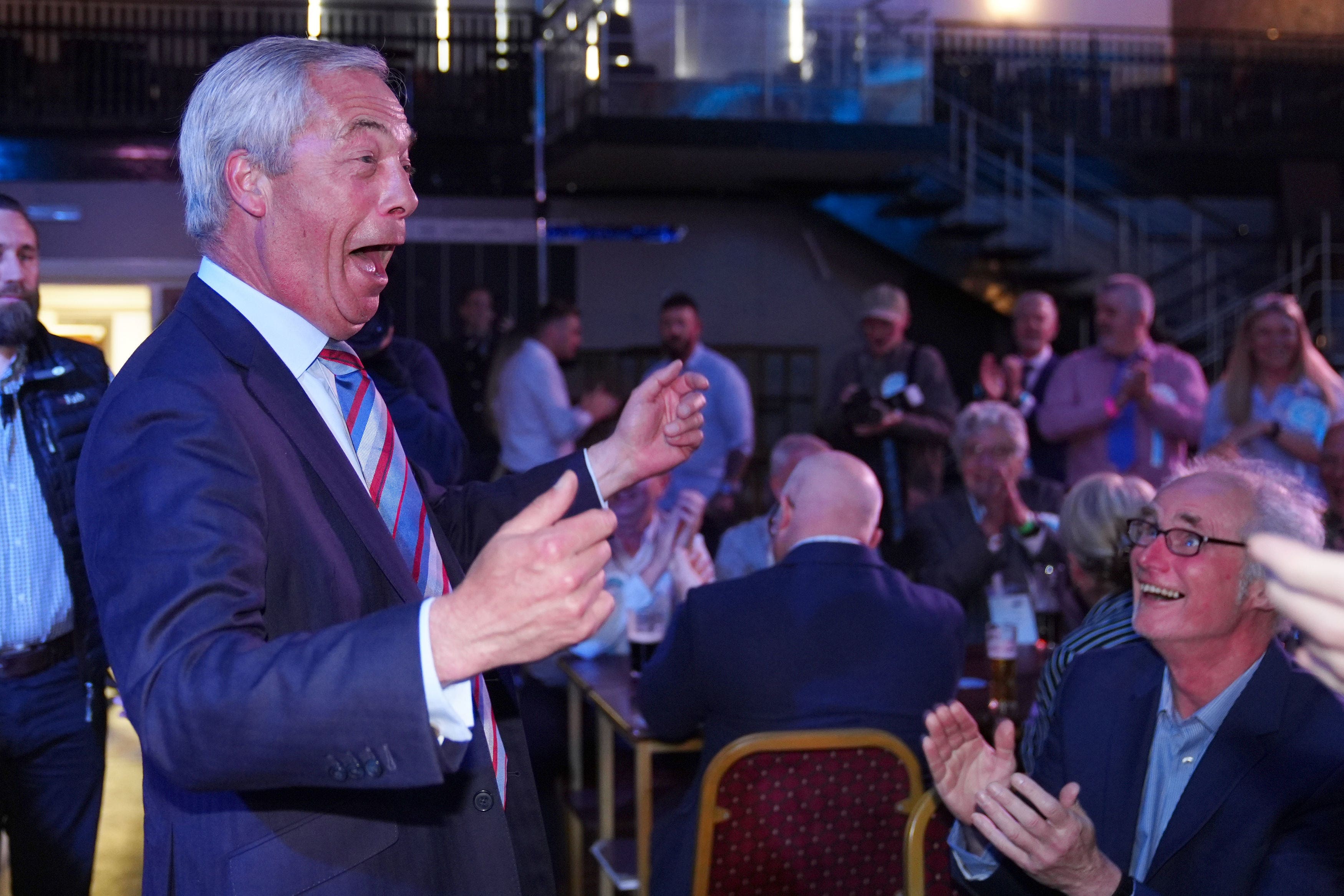ARTICLE AD BOX
We need only one number to understand the significance of the elections on Thursday. The number is 30 per cent. That is John Curtice’s estimate for the BBC of Reform’s share of the vote if there had been elections in all parts of Great Britain.
The importance of it is that around that point the first-past-the-post voting system starts to work for a party instead of against it. That is why Nigel Farage’s party hit the jackpot when the votes were counted on Friday, winning a by-election, two mayoralties and 600 local council seats.
The implications for national politics are profound. In a two-party system with five or six parties, a party with 30 per cent of the vote can win a general election. We know this because Labour won a Blair-scale majority last year on just 35 per cent of the vote.
Farage said on Friday: “Today marks the end of two-party politics – it is finished.” But he is quite wrong. His breakthrough could mark the change of one of the parties in what remains essentially a two-party system.
That is why Conservative MPs were so alarmed on Friday as they watched the number of Reform council seats go up and Tory seats go down by almost the same number. The Tories lost two-thirds of their seats, and for the first time some Tory MPs felt they were watching a premonition of what might happen to them at the next general election.

Farage has been saying that politics is about to be realigned for more than a decade now, which makes it sound as if he is crying wolf, but this time there really could be a wolf – and it could be him. This could be the end of the Tory party.
It is true that Reform picked up a lot of disaffected Labour voters as well on Thursday, and beat Labour in Runcorn, Hull, Doncaster and Durham. It was mainly because the Tories were defending so many council seats that they lost so many. But in a general election Farage is more of a threat to the Tories than he is to Labour, simply because Labour has a core vote that would never consider voting for him. For the Tories, there is no such floor.
One person who was obviously watching the BBC ticker as council seats switched from Tory to Reform was Liz Truss. She tweeted that “the system has become more powerful and has been captured by leftist, globalist ideology”, and that “the only path for Conservative success (and the right path for Britain) is to take on the system – everything from the unaccountable judiciary to the Bank of England, the OBR, the HRA, the Equality Act and most of all the unelected state who actually run Britain”.
She must be desperate for Farage to invite her to join him, because she sees his electoral success as a vindication of her approach. He hailed her 2022 mini-Budget, after all, as “the best Conservative Budget since 1986”. She has even been in talks with unknown people in Reform about how to “take on the system”.
But I predict that she will be disappointed. Farage has enough of an instinct for politics to know that she would be poison to his brand. Not for nothing did Starmer at Prime Minister’s Questions on Wednesday shoehorn an inaccurate reference to Farage recruiting Truss “as his new top adviser” into an answer about Channel crossings. Starmer and Farage both know how damaging that connection would be.
Farage is canny enough to know that the dangers he has to navigate in the next four years include associations with people David Cameron once described as “swivel-eyed loons”.
Farage has learned a lot over the years. The level of organisation of Reform’s election campaign on Thursday was markedly more professional than Ukip, Brexit Party and Reform campaigns have been in the past. It is no longer enough for his opponents to assume that he will fall out with his allies or that his new mayors and councillors will make a mess of things.
They probably will, but they are up against demoralised Tories who have no money and a Labour government that has not always shown a sure touch in facing up to the challenges it faces.
To be fair to Starmer, his response to the elections in The Times struck the right tone – “we get it” instead of “it’s just a mid-term protest” – and set out the right priorities: “More money in your pocket, lower NHS waiting lists, lower immigration numbers.”
But those are likely to be hard to deliver. The world is tipping into recession, the war in Europe is on our tab now and the public finances are still shot to pieces after the biggest tax rise since 1993. The NHS has taken 100 steps back and one step forward. And as for small boats, Starmer has even less of an idea what to do than Rishi Sunak, and Sunak couldn’t stop them either.
As they counted the “real votes in real ballot boxes” on Friday, it was possible to see how Reform could do more than simply replace the Tories as the opposition – historic as that might be.
It is pointless to speculate at this distance how precisely the chips might fall, but if Reform wins 30 per cent of the vote at the next general election, Farage could easily be prime minister.









 English (US) ·
English (US) ·